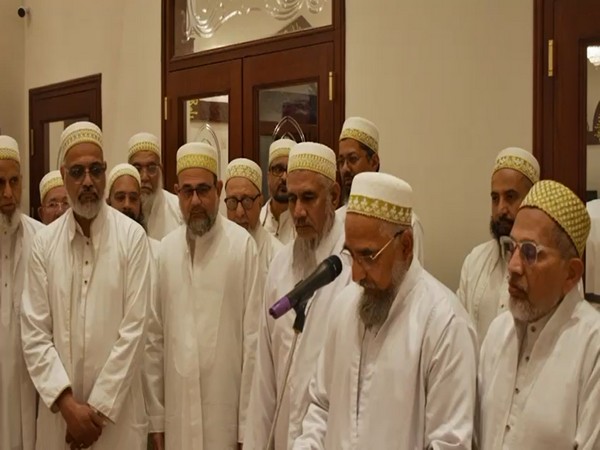Pak continues cotton trade with China, Xinjiang despite growing int'l condemnation
Apr 07, 2021

Islamabad [Pakistan], April 7 : Despite fierce condemnation from the international community over cotton produced from forced labour in Xinjiang, Pakistan has announced to continue its cotton trade with China, especially from the region where over a million Uyghurs are detained in internment camps.
Dismissing all accusations and sanctions by western countries, Pakistan's cotton export and import bodies have taken a crystal-clear stance that the Xinjiang cotton industry is not stigmatised by human rights abuses and forced labour, rather the move is politically motivated, Pakistan Observer reported citing China Economic Net (CEN).
Pakistan traders see the boycott of cotton from Xinjiang as 'reprehensible', said Pakistan Textile Exporter Association (PTEA) chairman Muhammad Ahmed.
"We have nothing to do with western campaign hell-bent to play Xinjiang cotton card to eclipse China image under the pretext of concocted accusation of human rights," he said.
He further said Pakistan's import trade with China will remain unhurt as traders are not going to succumb to any pressure, adding that the satisfaction of World Trade Organisation (WTO) and United Nations (UN) with working qualities show that western countries have their own ulterior motives to serve their trade agenda and political designs, Pakistan Observer reported.
According to a report by the Centre for Strategic and International Studies, China produces 22 per cent of the world's cotton, out of which 84 per cent comes from the Xinjiang region where over two million Uyghurs have been kept in mass detention camps.
Recently, several companies including H&M and Nike faced tremendous pressure after they said that they were concerned about allegations that forced labour has been used to produce cotton in Xinjiang.
The European Parliament recently observed that the Chinese authorities are systematically subjecting Uyghur women of childbearing age to forced abortions, intrauterine injections and sterilisation, with 80 per cent of all new intrauterine device (IUD) placements in China in 2018 performed in the Uyghur region, despite the fact that it makes up only 1.8 percent of China's population; whereas such measures to prevent births within the Uyghur population could meet the criteria for belonging to the worst crimes against humanity.
Several countries have also severed connections with the import of goods from Xinjiang over the rising concern of forced labour and human rights violations there.
China has been rebuked globally for cracking down on Uyghur Muslims by sending them to mass detention camps, interfering in their religious activities and sending members of the community to undergo some form of forcible re-education or indoctrination.
Beijing, on the other hand, has denied that it is engaged in human rights abuses against the Uyghurs in Xinjiang while reports from journalists, NGOs and former detainees have surfaced, highlighting the Chinese Communist Party's brutal crackdown on the ethnic community, according to a report.




















